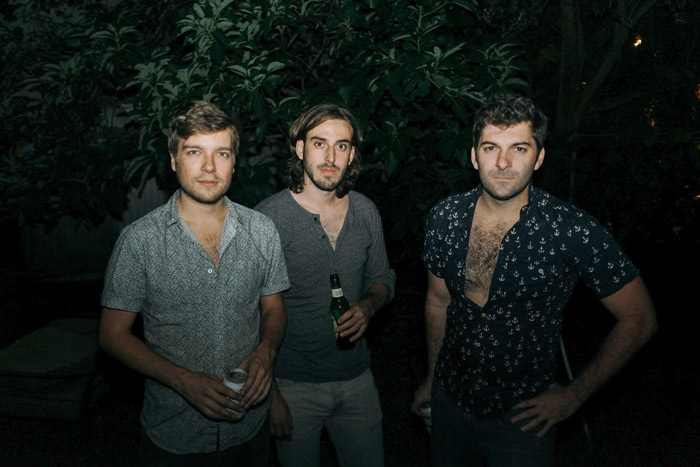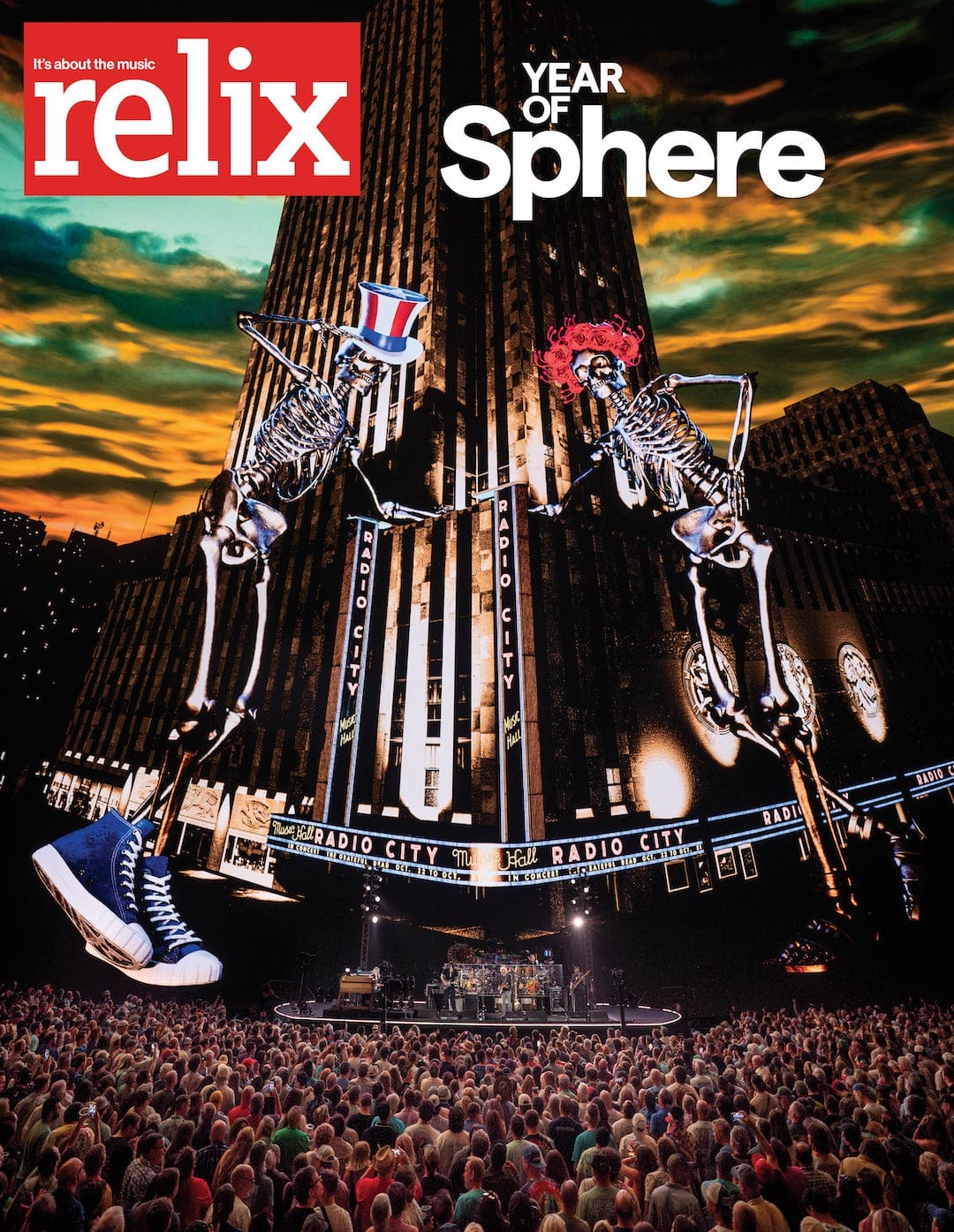Spotlight: Magic City Hippies

Magic City Hippies were on a creative high after finishing their sultry synth-funk single “Body Like a Weapon.” There was only one problem: They had no idea how to play it, but they had a gig booked that very week. “We write songs in the studio,” says guitarist John Coughlin. “All the stuff goes through Logic on the computer, so we have to learn our songs after we release them. This time, we learned this song and, in three days, we were playing it at a gig.”
That sense of resourcefulness has defined the band from the beginning. Frontman Robby Hunter started out playing on the streets of Miami, utilizing loop pedals and the strength of his malleable rap-to-croon voice. But after facing resistance from the local police, he ditched his DIY solo setup, recruiting Coughlin and producer/drummer Pat Howard for regular gigs at a neighborhood bar. The newly formed Robby Hunter Band built a local following with their funky, beachy vibe, highlighted on their debut LP, Magic City Hippies. But as their sound evolved, incorporating elements of indie-rock and electronica, the trio deemed it fitting to rebrand themselves. They harnessed the buzz of their self-titled 2015 EP into a massive number of Spotify streams and major festival slots, including an ever-coveted Bonnaroo set in 2017.
What began as lighthearted one-man-band busking has evolved into a democratic project. “Body Like a Weapon,” for example, originated from a random evening Howard spent in Magic City Hippies’ communal studio space, building sounds while his bandmates were out on their respective date nights.
“We’re at the studio probably four or five nights a week,” the drummer says. “It’s this nocturnal ritual. Date night is sacred. It’s usually a Tuesday, but sometimes someone has to switch. I just didn’t get the memo one night, and I was at the studio waiting for the guys to show up. We always have a pile of songs to chip away at and finish. It was a freeing thing, like, ‘I’m not supposed to be here right now,’ and I had this blank canvas. I ended up with this kinda Gorillaz-y [track].”
Howard built parts of the song with a newly acquired Prophet 12 synthesizer, and he and Coughlin finished the lyrics at work through instant messaging. With its thick analog synth-bass sound, wildly distorted guitar riffs and a rapped Hunter verse that his bandmates liken to Kendrick Lamar, “Body Like a Weapon” is another left turn in their catalog—coked-out yacht-rock with a menacing edge. But with the singer’s velvety falsetto and strong emphasis on groove, it retains the funk element that defined their early work.
Hunter admits he felt uncomfortable at first relinquishing creative control of the project. But as Magic City Hippies have grown in both style and in sheer size—onstage, they now feature the bass-keyboard duo The Flying Bellesario Brothers, who help approximate their layered studio arrangements—he’s appreciated being able to expand the band’s scope.
“It’s definitely been a process—maybe, at first, I was a little more hesitant,” he says. “I always like to throw my paint on the canvas first, and I’m usually pretty open to having my song destroyed and recreated again. It might be some cheesy acoustic song, and we’ll go, ‘No, no, no.’ I’m pretty used to that, but now we’re venturing into [having the other members] write verses, melodies and choruses. We’ve been having success so far, so we should keep doing it. We all have an equal voices.”
“Robby was bearing with me early on,” Howard says. “I came from making hip-hop beats, and they weren’t that great at first. I wanted to produce. There are a couple of things in the vault from way back where Robby is solo beatboxing with a Boss RC-50 and looping. There were a lot of iterations of some of those early ideas and attempts at making producer arrangements of Robby’s songs. It just took a couple years of sucking at it.”
Hunter finds it more challenging to stay outspoken about his political views without alienating his fans—particularly when the funkiness of their music often serves as a form of escapism. “I like that framing of it,” he says. “I don’t want the band to be political. [When people hear our music], I don’t want them to worry. I want them to escape and feel amazing and dance. We have friends in bands who are really big ‘Trumpies.’ And we may have our little political tit-for-tat here and there, but we’re still friends. You can exist in two different realms, and still come together on a different topic. The funk transcends.”
This article originally appears in the September 2018 issue of Relix. For more features, interviews, album reviews and more, subscribe here.



















